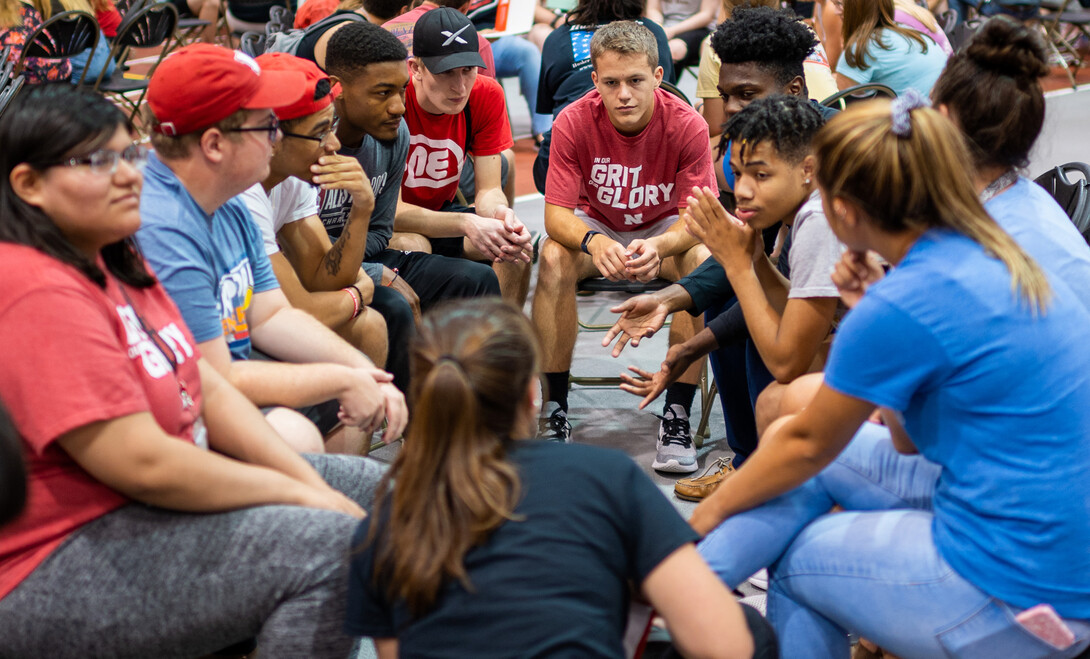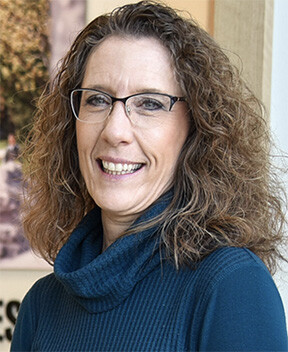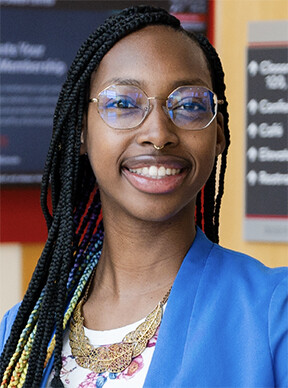
About 4,000 new students will participate in Husker Dialogues Sept. 6 and 13, where they will gain new perspectives, build out their community, and enhance their collegiate experience through inclusive conversations.
The small-group sessions are led by faculty, staff and returning students who serve as Conversation Guides. Mikki Sandin, who has volunteered as a guide since 2018, said it is an incredible opportunity to make a big impact on students in a short amount of time.

Any faculty, staff or returning student is invited to volunteer as a Conversation Guide. Volunteers are required to complete a one-hour training, and be able to serve as a guide during the Husker Dialogues sessions. Husker Dialogues sessions will be offered in-person 7-8:30 p.m. Sept. 6 in the Coliseum, and virtually 7-8:30 p.m. Sept. 13, via Zoom.
Kadina Koonce, assistant director of career development and planning in the College of Business, is a Conversation Guide trainer and has volunteered as a guide. She said the training prepares volunteers for leading discussions with students and facilitating brave conversations. Husker Dialogues leads off with four student speakers who share their own stories via pre-recorded video, followed by chats in small groups.

“We also have a mini-practice session with one another, after watching one of the student story videos.”
Following training, guides will also have access to a variety of online tools through Canvas.
Koonce and Sandin said if someone is considering being a Conversation Guide but is unsure if they want to guide a group themselves, they can ask to be paired with an experienced guide.
As a Conversation Guide, Sandin has witnessed how the experience helps students recognize and appreciate their differences and get to know one another on a deeper level, creating a more inclusive and welcoming campus.
“Acknowledging that we all come from different backgrounds and have different experiences that have shaped our perceptions and recognizing how those might be different from another person can help us all accept those differences and learn to grow together,” Sandin said.
To volunteer as a Conversation Guide for Husker Dialogues, sign up online by Sept. 1.







